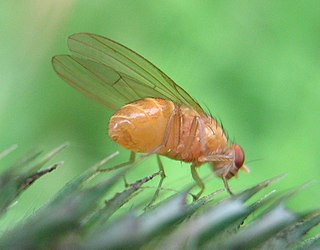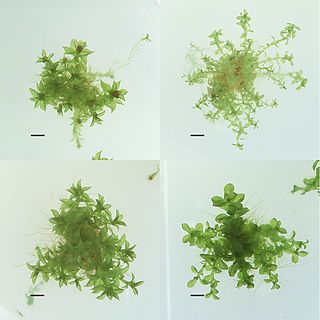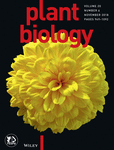
Biology – The natural science that studies life. Areas of focus include structure, function, growth, origin, evolution, distribution, and taxonomy.

A hormone is a class of signaling molecules in multicellular organisms that are sent to distant organs by complex biological processes to regulate physiology and behavior. Hormones are required for the correct development of animals, plants and fungi. Due to the broad definition of a hormone, numerous kinds of molecules can be classified as hormones. Among the substances that can be considered hormones, are eicosanoids, steroids, amino acid derivatives, protein or peptides, and gases.

Physiology is the scientific study of functions and mechanisms in a living system. As a sub-discipline of biology, physiology focuses on how organisms, organ systems, individual organs, cells, and biomolecules carry out chemical and physical functions in a living system. According to the classes of organisms, the field can be divided into medical physiology, animal physiology, plant physiology, cell physiology, and comparative physiology.
Zoology is the scientific study of animals. Its studies include the structure, embryology, classification, habits, and distribution of all animals, both living and extinct, and how they interact with their ecosystems. Zoology is one of the primary branches of biology. The term is derived from Ancient Greek ζῷον, zōion ('animal'), and λόγος, logos.

In biological taxonomy, race is an informal rank in the taxonomic hierarchy for which various definitions exist. Sometimes it is used to denote a level below that of subspecies, while at other times it is used as a synonym for subspecies. It has been used as a higher rank than strain, with several strains making up one race. Races may be genetically distinct populations of individuals within the same species, or they may be defined in other ways, e.g. geographically, or physiologically. Genetic isolation between races is not complete, but genetic differences may have accumulated that are not (yet) sufficient to separate species.

BioEssays is a monthly peer-reviewed review journal covering molecular and cellular biology. Areas covered include genetics, genomics, epigenetics, evolution, developmental biology, neuroscience, human biology, physiology, systems biology, and plant biology. The journal also publishes commentaries on aspects of science communication, education, policy, and current affairs.

Phenotypic plasticity refers to some of the changes in an organism's behavior, morphology and physiology in response to a unique environment. Fundamental to the way in which organisms cope with environmental variation, phenotypic plasticity encompasses all types of environmentally induced changes that may or may not be permanent throughout an individual's lifespan.
Physiologia Plantarum is a peer-reviewed scientific journal published by Wiley-Blackwell on behalf of the Scandinavian Plant Physiology Society. The journal publishes papers on all aspects of all organizational levels of experimental plant biology ranging from biophysics, biochemistry, molecular and cell biology to ecophysiology.
The Max Planck Institute of Molecular Plant Physiology is a German research institute for molecular plant physiology, based in the Golm district of Potsdam, Brandenburg. Founded on 1 January 1994, the MPIMP focuses on the study of the dynamics of plant metabolism and how that relates to the entire plant system. The institution is one of the 80 institutes in the Max Planck Society (Max-Planck-Gesellschaft).
The Society for Experimental Biology is a learned society for animal, cell and plant biologists. It was founded in 1923 at Birkbeck College to "promote the art and science of experimental biology in all its branches". It aims to demonstrate the importance and impact of experimental biology research to the wider public and within the scientific community and to connect and support experimental biologists in their research and career development. The society has an international membership of approximately 1500, more than 20 scientific special interest groups and an outreach, education, and diversity (OED) group.
The Botanical Society of America (BSA) represents professional and amateur botanists, researchers, educators and students in over 80 countries of the world. It functions as a United States nonprofit 501(c)(3) membership society.

Annual Review of Plant Biology is a peer-reviewed scientific journal published by Annual Reviews. It was first published in 1950 as the Annual Review of Plant Physiology. Sabeeha Merchant has been the editor since 2005, making her the longest-serving editor in the journal's history after Winslow Briggs (1973–1993). As of 2023, Journal Citation Reports lists the journal's 2022 impact factor as 23.9, ranking it second of 238 journal titles in the category "Plant Sciences".

Canadian Science Publishing (CSP) is Canada's largest publisher of international scientific journals. It started in 1929 as the NRC Research Press, part of the National Research Council (NRC). In 2010, the organization spun off from NRC and was incorporated as a not-for-profit.
The American Physiological Society is a non-profit professional society for physiologists. It has nearly 10,000 members, most of whom hold doctoral degrees in medicine, physiology or other health professions. Its mission is to support research and education in the physiological sciences. The society publishes 16 peer reviewed journals, sponsors scientific conferences, and sponsors awards to further this mission.

An omnivore is an animal that has the ability to eat and survive on both plant and animal matter. Obtaining energy and nutrients from plant and animal matter, omnivores digest carbohydrates, protein, fat, and fiber, and metabolize the nutrients and energy of the sources absorbed. Often, they have the ability to incorporate food sources such as algae, fungi, and bacteria into their diet.

New Phytologist is a peer-reviewed scientific journal published on behalf of the New Phytologist Foundation by Wiley-Blackwell. It was founded in 1902 by botanist Arthur Tansley, who served as editor until 1931.

The Journal of Experimental Botany (JXB) is a peer-reviewed scientific journal published by Oxford University Press on behalf of the Society for Experimental Biology. It covers research on plant biology, focusing on molecular physiology, molecular genetics, and environmental physiology. Some of its content is available under an open access licence. The editor-in-chief is John Lunn.
The Journal of Experimental Marine Biology and Ecology is a peer-reviewed bimonthly journal which publishes work on the biochemistry, physiology, behaviour, and genetics of marine plants and animals in relation to their ecology. According to the Journal Citation Reports, the journal has a 2015 impact factor of 1.796.
Anil Grover is an Indian molecular biologist, professor and the head of the Department of Plant Molecular Biology at the University of Delhi. He also heads the Anil Grover Lab of the department, serving as the principal investigator. Known for his research in the field of molecular biology of plants, Grover is an elected fellow of all the three major Indian science academies namely the National Academy of Sciences, India, the Indian Academy of Sciences and the Indian National Science Academy as well as the National Academy of Agricultural Sciences. The Department of Biotechnology of the Government of India awarded him the National Bioscience Award for Career Development, one of the highest Indian science awards, for his contributions to biosciences in 2002.

Plant Biology is a peer-reviewed scientific journal of plant biology. The journal was originally established as Berichte der Deutschen Botanischen Gesellschaft in 1883, changed its name to Botanica Acta in 1988. In 1999, the journal renamed itself Plant Biology, and restarted the volume numbering.











